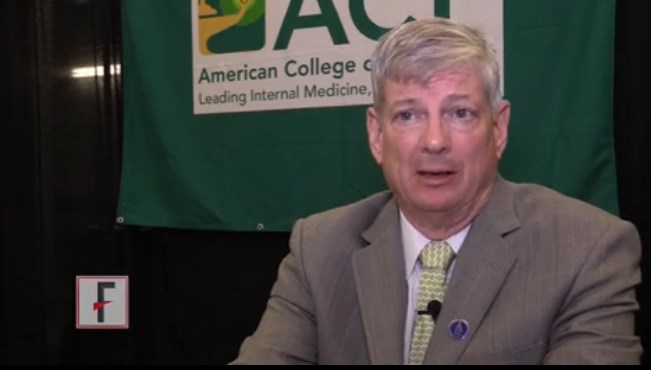User login
BOSTON – When the Medicare Access and CHIP Reauthorization Act goes into effect in 2019, will you be ready?
In a video interview at the annual meeting of the American College of Physicians, Robert B. Doherty, senior vice president of governmental affairs and public policy for the ACP, outlined what physicians need to know about Medicare’s post–Sustainable Growth Rate payment structures, including the difference between MIPS and ACMs.
He also explained how these new Medicare payment structures give physicians more control over their reimbursements while also requiring physicians to endure greater risk.
The video associated with this article is no longer available on this site. Please view all of our videos on the MDedge YouTube channel
On Twitter @whitneymcknight
BOSTON – When the Medicare Access and CHIP Reauthorization Act goes into effect in 2019, will you be ready?
In a video interview at the annual meeting of the American College of Physicians, Robert B. Doherty, senior vice president of governmental affairs and public policy for the ACP, outlined what physicians need to know about Medicare’s post–Sustainable Growth Rate payment structures, including the difference between MIPS and ACMs.
He also explained how these new Medicare payment structures give physicians more control over their reimbursements while also requiring physicians to endure greater risk.
The video associated with this article is no longer available on this site. Please view all of our videos on the MDedge YouTube channel
On Twitter @whitneymcknight
BOSTON – When the Medicare Access and CHIP Reauthorization Act goes into effect in 2019, will you be ready?
In a video interview at the annual meeting of the American College of Physicians, Robert B. Doherty, senior vice president of governmental affairs and public policy for the ACP, outlined what physicians need to know about Medicare’s post–Sustainable Growth Rate payment structures, including the difference between MIPS and ACMs.
He also explained how these new Medicare payment structures give physicians more control over their reimbursements while also requiring physicians to endure greater risk.
The video associated with this article is no longer available on this site. Please view all of our videos on the MDedge YouTube channel
On Twitter @whitneymcknight
AT ACP INTERNAL MEDICINE 2015
